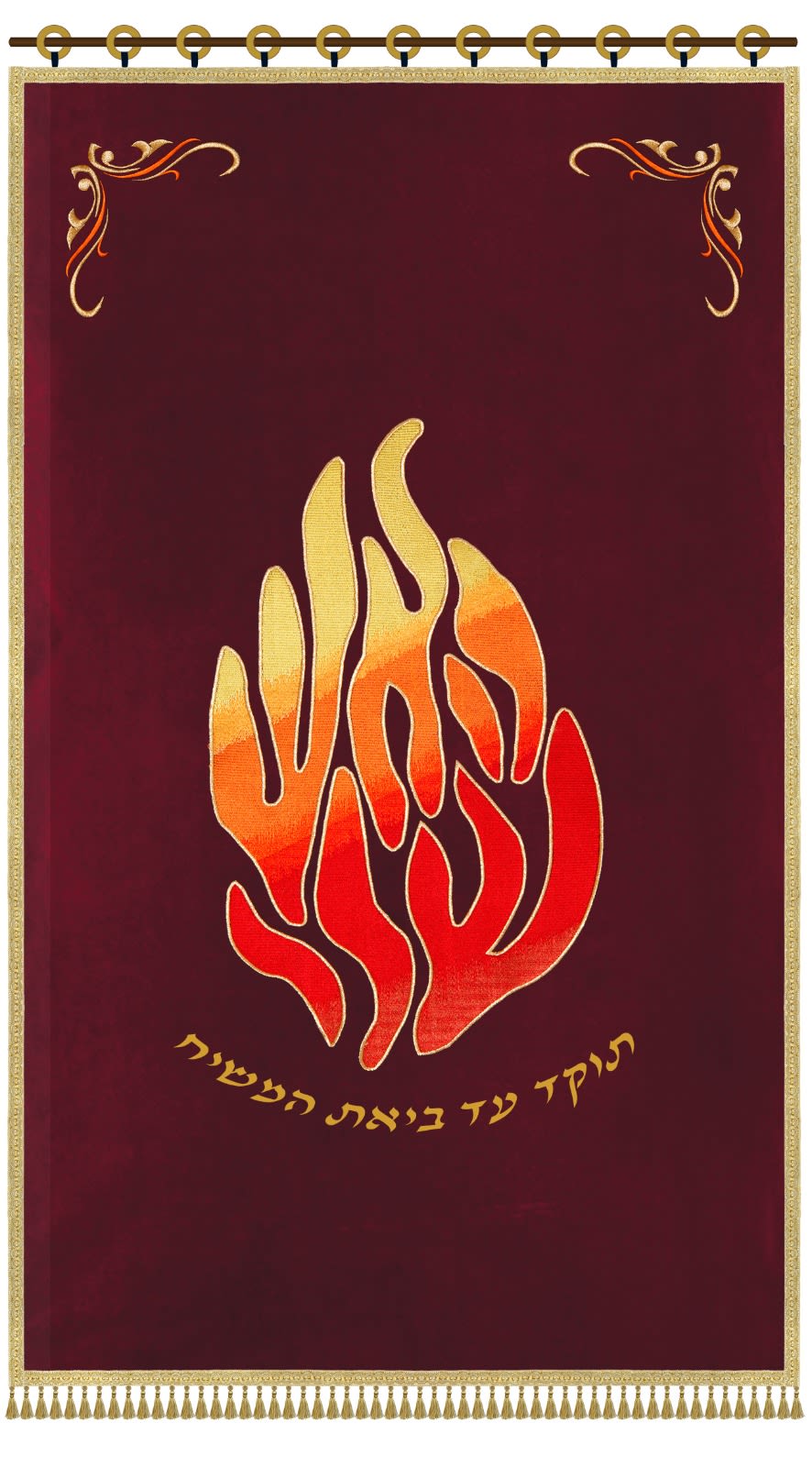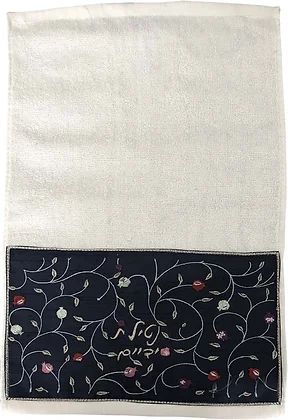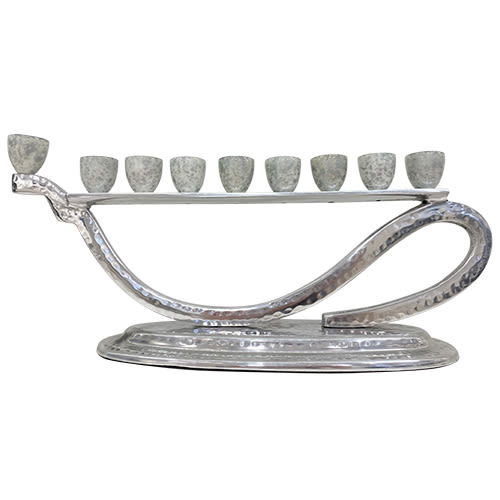
The Oath
The year was 1978. Seventeen young theological students gathered in the old town of Borga to prepare for the ceremonial ordination into priesthood, one of whom was Shlomo...

Strangers No More, Part 5
The year was 1978. After five years at University, seventeen young theological students gathered in the old town of Borga to prepare for the ceremonial ordination into priesthood the following Sunday. The Medieval Dome stood majestically in the center of town, quietly signaling the influence and power of the Lutheran Church in Finland. By the foot of the Dome, the residence of the Bishop, a grand two-story mansion, was to house the reception on the eve of the big event.
The week had been busy with last-minute preparations. My formal graduation from University was complete. I had studied at Abo Akademi, the Swedish University of Turku, the cultural capital of Finland. The master’s degree still felt good in my hand. Now the Church was about to give its blessing to these young and eager students to start practicing what they had been studying for. Receiving a degree in theology does not, however, only qualify you to become a minister in the Church. The University is a free institution with a program of its own. Many of the graduates become teachers, journalists, researchers, and then there are those who seek ordination.
The evening reception also served as a last-minute rehearsal for the big event. The Diocese lawyer was present to stress the importance of the holy oath of office we were about to take prior to the ordination service. Our lawyer was somewhat controversial, liked by some, very much disliked by others. We all agreed that he was very intelligent and skillful – fearful character traits if he happened to be an adversary. Church law was part of our study program. I had an affinity for the subject, and I liked our master too. Suddenly we all became quite serious. Our lawyer explained the oath we had to take that morning. The combination of his convincing voice and nonchalant attitude, a result of his familiarity with the subject, succeeded in capturing our attention completely.
“I can’t do it,” one of the candidates said, “this is getting too serious. My ‘yes’ is ‘yes’ and ‘no’ is ‘no,’ but I can’t swear on the Bible to obey the Church for the rest of my life.” The tension was rising. Was there to be an argument before the festivities? For the hesitant candidates, there was an alternative: one may give a solemn declaration instead of swearing on the Bible. That satisfied the scared candidate, but it created a stir that made us reexamine our situation and the significance of the step we were about to take.
At that moment I did not feel any need to rebel. I was prepared for this step, and by taking an oath on the Bible I was placing more emphasis on the Scripture than on the Church, that was, after all, the object of our oath. Nevertheless, I regarded the promise and oath to be a lifetime commitment, never to be broken.
In the lead-up to this momentous event, the ultimate joy and satisfaction was taken from me when my father – blessed be his memory – passed away suddenly, six months before my ordination. He had followed my studies intensively and was looking forward to my ordination. The rest of my immediate family attended the festivities. We gathered at the hotel in central Borga – my wife, mother, sister and two brothers with their spouses, and my mother-in-law. Our baby girl Linda, who was a year and a half at the time, was at home with a babysitter. This was the second ordination in our family. Two years earlier we had witnessed my brother’s ordination in Sweden. Birger had studied theology at the University of Uppsala and was ordained to the ministry in the Church of Sweden in Lulea in 1976. Now he had the privilege of being one of the assistants to the Bishop who officiated at my ordination ceremony. What could be more satisfying and meaningful than two brothers joining into the same priesthood.
My mother was not, by nature, an outspoken person, and at this time, she was particularly introverted since she was still very much in pain after losing her husband of nearly forty years. Although she did not express her feelings in words, I knew she was very happy for me and the family. Since I was the youngest in my family, my mother was anxious for me to receive an education and start an independent life, a life dedicated to God. The day of my ordination was therefore a victory for her faith and for her struggle. She could now relax; her youngest child now held a respected profession and position.
My mother never said it, but in her own way, she conveyed a special message to me. It was reflected in the greeting she wrote on a gift she gave me, a small painting of my childhood home. Like Hanna in the Temple she wanted to offer her son to the service of the Almighty. Now two of her sons had become ministers in the Church. The greeting on the back of the painting was from Psalm 84:
“How lovely are thy dwelling places, O Lord of hosts. My soul longs, indeed, it faints for the courts of the Lord, my heart and my flesh cry out for the living God. Even the sparrow has found a home and a swallow a nest for herself, where she may lay her young. Thy altars, O Lord of hosts my King and my God. Happy are they who dwell in thy house; they are ever praising thee (Sela). Happy is the man whose strength is in thee in whose heart are thy highways, who passing through the valley of Bakha, turn into a water spring; moreover the early rains cover it with blessings. They go from strength to strength, every one of them appears before God in Zion.”
The Dome was packed. The candidates lined up in the sacristy, the room behind the altar for the ministers. We were dressed in the obligatory black caftan with its white collar. The caftan was tailor-made, very high quality and expensive, for it had to last for a long time. This knee-length black robe is the festive garment of a minister, worn to weddings, funerals and other occasions, and is comparable to a dress suit. The every-day clothing for a minister is a standard suit and black shirt with a white collar. But today was definitely a festive occasion and nothing but the best would do. The assistants walked behind us, and last, the Bishop. When we entered the church, the organist and the trumpeter filled the old archways with magnificent chorales. An overwhelming feeling encompassed my whole being. We were displaced in time – medieval or modern, ancient or biblical – it did not matter. Everything was concentrated in this moment, the focal point of all of history. And now, my young life was connected with a history that was much more important than my own.
When the procession reached the front of the church we positioned ourselves in a semi-circle in front of the altar rail, ready to kneel for the blessing later during the service, after we had been dressed in our liturgical vestments. As with every other service in the Church, our ordination began in the name of the Triune God, announced by the officiating Bishop. All the candidates expressed their faith according to the creed of the Church. This creed talks about the Father, Son and Holy Spirit. Followed by our declarations of willingness to serve the Church and fight heresy, we were clothed in the clerical robes, the visible sign of being an ordained minister. These vestments were to be worn only when we would officiate at a Church service. Among the assistants at our ceremony were personal friends of the candidates; others were invited because they were to become colleagues in the congregations where the candidates were assigned their first positions. I was privileged to have my own brother present. He was now clothing me with my clerical insignia. This was an important moment in my life. We were joined in double brotherhood with the same life mission – to serve God.
My ordination was a happy and satisfying occasion. This was how I understood Mother Linnea’s message, written on the back of her gift to me for my ordination. “…For a day in thy courts is better than a thousand. I had rather be at the threshold in the house of my God, than dwell in the tents of wickedness.”
The service was over. Now it was time for real life to begin. We headed to our new positions, assigned by the Bishop. I had made it clear that I preferred to be located in the west coast of the country. It seemed that the Bishop agreed, for my first congregation was in Vasa, where I was to serve as the junior minister with four senior colleagues.
(Strangers No More, by Shlomo Brunell. Reprinted with courtesy of Gefen Publishing House 2005 www.gefenpublishing.com)












Tell us what you think!
Thank you for your comment!
It will be published after approval by the Editor.